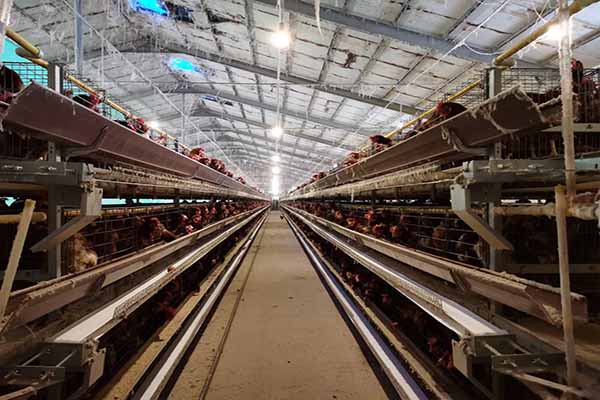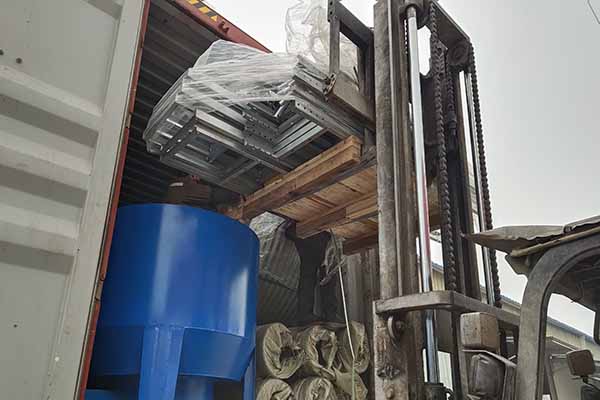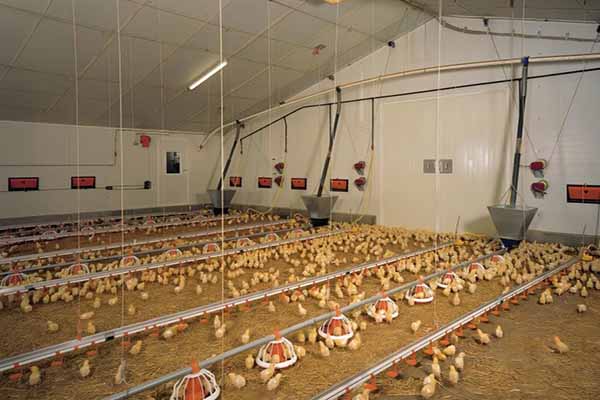Kenya Chicken Farm Certification Standards: A Comprehensive Guide
Time : 2025-06-24
The Kenyan poultry industry has seen significant growth in recent years, with an increasing number of chicken farms emerging across the country. To ensure the quality and safety of chicken production, the government and various international organizations have set stringent certification standards. This article provides a comprehensive guide to the certification standards for chicken farms in Kenya, focusing on the necessary criteria and the role of professional poultry equipment.
Introduction to Certification Standards in Kenya
Kenya has adopted various certification standards to regulate the chicken farming industry. These standards are designed to ensure that chicken farmers adhere to best practices in animal welfare, food safety, environmental management, and quality assurance. The main certification bodies in Kenya include the Kenya Bureau of Standards (KEBS), the Department of Animal Health and Production, and international organizations like the Global Good Agricultural Practices (GAP) and the Organic Materials Review Institute (OMRI).

KEBS Certification Standards
The Kenya Bureau of Standards (KEBS) has developed a set of guidelines specifically for chicken farms. These guidelines cover various aspects of farm management, including biosecurity, feed and water quality, housing, health and welfare, and waste management. To obtain KEBS certification, chicken farms must meet the following criteria:
- Biosecurity Measures: Farms must implement effective biosecurity measures to prevent the introduction and spread of diseases. This includes restricted access to the farm, regular disinfection, and the use of specific biosecurity equipment like footbaths and disinfection chambers.
- Feed and Water Quality: The farm must use feed and water that meet the required quality standards. This includes sourcing feed from reputable suppliers and ensuring the water supply is free from contaminants.
- Housing Conditions: Chicken houses must provide adequate space for the chickens to move around freely, with proper ventilation and temperature control. The use of professional poultry equipment, such as automated feeders and waterers, is encouraged to improve efficiency and reduce manual labor.
- Health and Welfare: Regular health checks and vaccinations are mandatory, and farmers must follow best practices in animal welfare. The use of equipment like automated weighing systems and health monitoring systems can help in maintaining optimal chicken health.
- Waste Management: Farms must have a proper waste management system in place to minimize environmental impact. This includes composting, recycling, and proper disposal of waste materials.
Global Good Agricultural Practices (GAP)
The Global Good Agricultural Practices (GAP) are a set of guidelines designed to assist farmers in producing food safely and responsibly. In Kenya, GAP certification for chicken farms involves meeting specific requirements in the areas of food safety, environmental management, and social responsibility. Some key aspects of GAP certification include:
- Food Safety: Farms must implement procedures to prevent foodborne illnesses, such as regular cleaning and sanitizing of facilities, training of workers in food safety practices, and the use of approved inputs.
- Environmental Management: Sustainable practices should be employed to minimize the environmental impact of farming operations, including efficient water use and proper waste management.
- Social Responsibility: Farms must adhere to labor standards and provide a safe and healthy working environment for their employees.
Organic Materials Review Institute (OMRI)
The Organic Materials Review Institute (OMRI) provides a list of products that can be used in organic farming. For chicken farms in Kenya seeking organic certification, it is essential to use OMRI-listed products for feed, bedding, and other inputs. This ensures that the entire farming operation complies with organic standards.

The Role of Professional Poultry Equipment
Professional poultry equipment plays a crucial role in meeting certification standards for chicken farms in Kenya. Here are some key pieces of equipment that can help farmers comply with the necessary criteria:
- Automated Feeders and Waterers: These systems provide precise control over feed and water distribution, ensuring that chickens receive the correct amounts of nutrients and water at all times. This improves efficiency and reduces the risk of feed wastage.
- Environmental Control Systems: Systems that regulate temperature, humidity, and air quality in chicken houses help create optimal living conditions for the birds, reducing stress and disease risk.
- Health Monitoring Equipment: Equipment like automated weighing systems and health monitoring systems enable farmers to track the health and growth of their chickens, making it easier to identify and address potential issues.
- Disinfection Equipment: Equipment like footbaths and disinfection chambers are essential for maintaining high biosecurity standards.
Conclusion
Compliance with certification standards is vital for the Kenyan chicken farming industry to ensure the production of high-quality, safe, and sustainable chicken products. By adhering to the guidelines set by KEBS, GAP, and OMRI, and by investing in professional poultry equipment, chicken farmers can not only meet the required criteria but also improve their overall farm operations.

Kenya chicken farm certification standards are designed to promote best practices in chicken farming, protect public health, and safeguard the environment. As the industry continues to grow, it is crucial for farmers to stay informed about the latest standards and adopt innovative solutions to meet these requirements.











